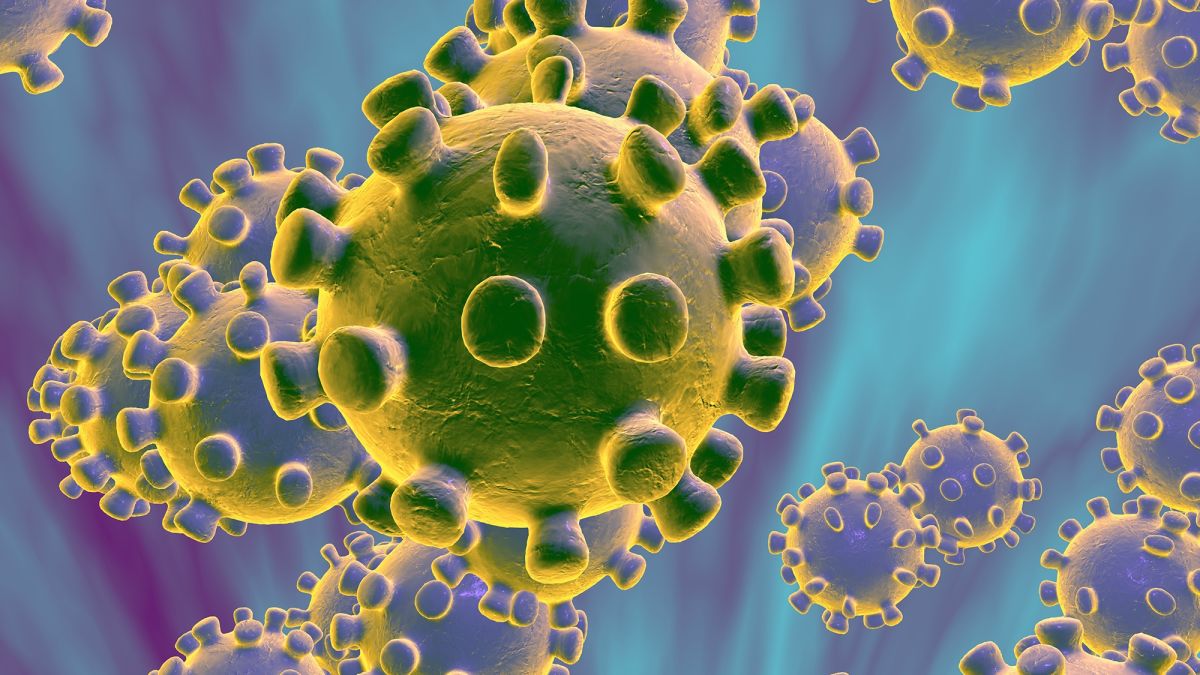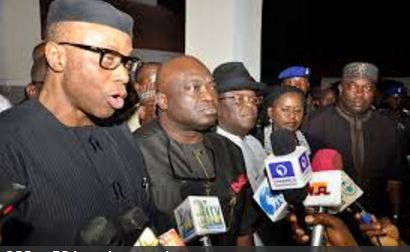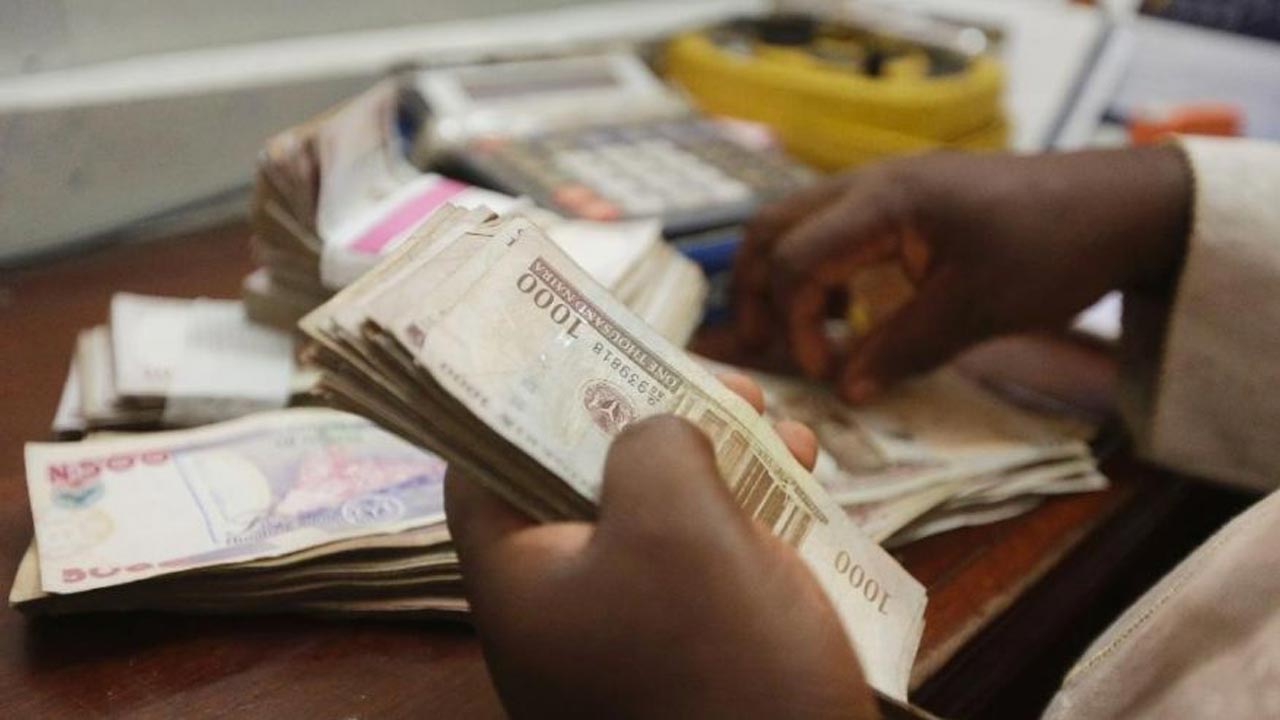President Cyril Ramaphosa has announced the gradual and phased reopening of South Africa’s economy, stressing that a nation-wide lockdown is probably the most effective means to contain the spread of the Coronavirus disease (COVID-19) but that the lockdown cannot be sustained indefinitely.
TheNewsGuru.com (TNG) reports President Ramaphosa stated this on Thursday when he addressed the nation on measures the country continues to undertake to contain the spread of the Coronavirus.
The address follows a meeting of the National Command Council and consultations with several stakeholders including leaders of political parties represented in Parliament.
Read the president’s address below:
Statement by President Cyril Ramaphosa on South Africa’s response to the coronavirus pandemic, Union Buildings, Tshwane
23 April 2020 – 12:00am
My Fellow South Africans,
It has been exactly seven weeks since the first case of the coronavirus was confirmed in our country.
Since then, all our lives have changed in fundamental ways.
As a nation we have been forced to take aggressive action against an invisible enemy that threatened our lives and the lives of our loved ones.
We have been forced to adapt to a new way of living, in a short space of time.
As we enter the fifth week of an unprecedented nation-wide lockdown – and as we look to the future – we should remember why we are here.
The novel coronavirus, which was identified in the Chinese city of Wuhan in December last year, has spread rapidly across the world.
To date, over 2.6 million confirmed cases have been reported worldwide. The actual number of people infected is likely to be far higher.
The coronavirus causes the disease known as COVID-19, a respiratory illness for which humans currently have no immunity and for which there is no known cure.
The coronavirus is passed from person to person in small droplets from the nose and mouth that can be transmitted by direct contact, on surfaces we touch or when an infected person coughs or sneezes when they are close to another person.
Most infected people exhibit only mild symptoms; some do not show any symptoms at all.
But there are people who develop severe symptoms and require hospitalisation.
These are usually older people and those who suffer from underlying conditions such as heart disease, diabetes, chronic respiratory disease and cancer. For some of these people, COVID-19 is fatal.
Across the world, more than 185,000 people have succumbed to the disease. Here in South Africa, at least 75 people have lost their lives.
Because the coronavirus can spread so rapidly through a population, it can overwhelm even the best-resourced health system within a matter of weeks.
This is what has occurred in many countries across the world, and it is precisely what we, as South Africa, have gone to great lengths to prevent.
Very few health systems across the world – if any – are prepared for a sudden and exponential increase in people requiring treatment for a severe respiratory illness.
As a result, if the virus spreads too quickly, there are not enough hospital beds, intensive care units, ventilators, personal protection equipment or medicine for everyone who needs them.
To make matters worse, people who are suffering from other conditions or need emergency procedures are unable to get the care they need.
And in such circumstances, many lives that could have been saved, are lost.
I am reiterating these basic facts – which by now are probably familiar to many of you – because they explain the actions we have taken to date and they inform the measures I am announcing this evening.
From the moment we declared the coronavirus pandemic to be a national disaster on Sunday 15 March, our objective was to delay the spread of the virus.
We have sought to avoid a massive surge in infections and an uncontrollable increase in the number of people needing medical care.
Our approach has been based on the principles of social distancing, restriction of movement and stringent basic hygiene practices.
By delaying the spread of the virus, we have had time to prepare our health facilities and mobilise some of the essential medical supplies needed to meet the inevitable increase in infections.
And it is in so doing, that we hope to save tens of thousands of lives.
There is clear evidence that the lockdown has been working.
Together with the other measures we have taken – such as closing our borders – and the changes in behaviour that each of us has made, the lockdown has slowed the progression of the pandemic in the country.
The World Health Organization has commended South Africa for acting swiftly and for following scientific advice to delay the spread of the virus.
Yet, while a nation-wide lockdown is probably the most effective means to contain the spread of the coronavirus, it cannot be sustained indefinitely.
Our people need to eat. They need to earn a living. Companies need to be able to produce and to trade, they need to generate revenue and keep their employees in employment.
We have accordingly decided that beyond Thursday 30 April, we should begin a gradual and phased recovery of economic activity.
We will implement a risk adjusted strategy through which we take a deliberate and cautious approach to the easing of current lockdown restrictions.
We have decided on this approach because there is still much that is unknown about the rate and manner of the spread of the virus within our population.
The action we take now must therefore be measured and incremental.
This approach is guided by the advice from scientists who have advised that an abrupt and uncontrolled lifting of restrictions could cause a massive resurgence in infections.
We cannot take action today that we will deeply regret tomorrow.
We must avoid a rushed re-opening that could risk a spread, which would need to be followed by another hard lockdown, as has happened in other countries.
We have to balance the need to resume economic activity with the imperative to contain the virus and save lives.
To achieve this, we have developed an approach that determines the measures we should have in place based on the direction of the pandemic in our country.
As part of this approach, there will be five coronavirus levels:
Level 5 means that drastic measures are required to contain the spread of the virus to save lives.
Level 4 means that some activity can be allowed to resume subject to extreme precautions required to limit community transmission and outbreaks.
Level 3 involves the easing of some restrictions, including on work and social activities, to address a high risk of transmission.
Level 2 involves the further easing of restrictions, but the maintenance of physical distancing and restrictions on some leisure and social activities to prevent a resurgence of the virus.
Level 1 means that most normal activity can resume, with precautions and health guidelines followed at all times.
To ensure that our response to the pandemic can be as precise and targeted as possible, there will be a national level and separate levels for each province, district and metro in the country.
We are currently at Level 5, which requires a full national lockdown to contain the spread of the virus.
This is the highest level of lockdown and was imposed when drastic action was necessary to curb transmission.
The National Coronavirus Command Council will determine the alert level based on an assessment of the infection rate and the capacity of our health system to provide care to those who need it.
We have undertaken a detailed exercise to classify the different parts of the economy according to the risk of transmission in that sector, the expected impact of the lockdown, the economic contribution of the sector and the effect on livelihoods.
The relevant Ministers will provide a detailed briefing on the classification of industries and how each is affected at each level.
We will give all industry bodies an opportunity to consider these details and, should they wish, to make submissions before new regulations are gazetted.
The National Coronavirus Command Council met earlier today and determined that the national coronavirus alert level will be lowered from level 5 to level 4 with effect from Friday the 1st of May.
This means that some activity will be allowed to resume subject to extreme precautions to limit community transmission and outbreaks.
Some businesses will be allowed to resume operations under specific conditions.
Every business will have to adhere to detailed health and safety protocols to protect their employees, and workplace plans will be put in place to enable disease surveillance and prevent the spread of infection.
All businesses that are permitted to resume operations will be required to do so in a phased manner, first preparing the workplace for a return to operations, followed by the return of the workforce in batches of no more than one-third.
In some cases, a sector will not be able to return to full production during Level 4 while the risk of infection remains high.
These will be spelt out next week following a final round of consultations.
Businesses will be encouraged to adopt a work-from-home strategy where possible. All staff who can work remotely must be allowed to do so.
The relevant Ministers will provide details on the process for the phased re-opening of schools and other educational institutions.
As we gradually ease the restrictions, it is necessary that many of the measures to contain the spread of the virus remain in place.
When the country moves to level 4 on 1 May: Our borders will remain closed to international travel, except for the repatriation of South African nationals and foreign citizens.
No travel will be allowed between provinces, except for the transportation of goods and exceptional circumstances such as funerals.
Public transport will continue to operate, with limitations on the number of passengers and stringent hygiene requirements, including that all passengers must wear a face mask.
The public is encouraged to stay at home, other than for essential personal movement, doing essential work and work in sectors that are under controlled opening. People can exercise under strict public health conditions.
All gatherings, apart from funerals and for work, will remain prohibited.
Those who are elderly, and those with underlying conditions, must remain at home and take additional precautions to isolate themselves.
The sale of cigarettes will be permitted. The range of goods that may be sold will be extended to incorporate certain additional categories. These will be detailed by the relevant Ministers.
It is important to note that several restrictions will remain in place regardless of the level of alert for as long as the risk of transmission is present:
Bars and shebeens will remain closed. Conference and convention centres, entertainment venues, cinemas, theatres, and concerts will remain closed.
Concerts, sporting events, and religious, cultural and social gatherings will not be allowed until it is deemed safe for them to continue.
The coronavirus is spread by contact between people. If people do not travel, the virus does not travel.
We know, for example, that just one funeral in Port St Johns and one religious gathering in Mangaung contributed to a spate of infections in their respective provinces.
From the evidence we have, we know that 75 percent of confirmed coronavirus cases are found in just six metro municipalities – Johannesburg, Ekurhuleni, Cape Town, Buffalo City, EThekwini and Mangaung.
It is therefore essential that we do everything in our means to restrict the movement of people and – although it runs counter to our very nature – to reduce the contact that each of us has with each other.
Ultimately, it is our own actions, as individuals, that will determine how quickly the virus spreads.
If we all adhere to instructions and follow public health guidelines, we will keep the virus under control and will not need to reinstate the most drastic restrictions.
We can prevent the spread of coronavirus by doing a few simple things.
Wash your hands frequently with soap and water or use an alcohol based sanitiser.
Keep a distance of more than one metre between yourself and the next person, especially those who are coughing and sneezing.
Try not to touch your mouth, nose and eyes because your hands may have touched the coronavirus on surfaces.
When you cough or sneeze cover your mouth and nose with your bent elbow or a tissue, and dispose of the tissue right away.
As we begin the easing of lockdown restrictions from the beginning of May, we are calling on all South Africans to wear a face mask whenever you leave home.
Our clothing and textile industry – including many small businesses – are gearing up to produce these masks on a mass scale.
The extraordinary measures that we have put in place to combat the coronavirus pandemic have been matched by the extraordinary contributions of many South Africans.
We pay tribute to them, the nurses, the doctors, the scientists and the community screening field workers who are leading our public health response.
We are committed to ensuring that they have all the resources they need – including adequate personal protection equipment and other recognition – to undertake the work that is being asked of them.
As we slowly ease the lockdown restrictions, we are substantially and rapidly increasing our public health response.
We have already seen a huge increase in community screening and testing.
Guided by advice from the World Health Organization and the Africa Centres for Disease Control and Prevention, we have joined other African countries in placing mass screening and testing at the centre of the next phase of our response.
Earlier in the week, I announced an additional allocation of R20 billion to our health response to ensure that we have the beds, medicine, equipment and personnel required when the country experiences the peak of infections.
This evening, I also want to pay tribute to those who are providing essential services and goods – the truck, taxi, bus and train drivers; the workers on farms, in stores, at power stations, at water plants, at petrol stations, in banks and in call centres; the law enforcement officials and security personnel.
It is thanks to your efforts that we have been able to make such valuable progress in combating this pandemic.
As part of expanding this effort, I have employed over 70,000 defence force personnel to assist with various parts of our coronavirus response.
Until now, those defence force members that have been deployed have supported the South African Police Service in their responsibilities.
They will continue to do so, but they will also be providing assistance in other essential areas, such as the provision of water supply, infrastructure maintenance and health services.
This is a crucial moment in our struggle against the coronavirus.
It is a time for caution. It is a time to act responsibly. It is a time for patience. There is no person who doesn’t want to return to work. There is no company that does not want to re-open. There is no student who does not want to return to their studies.
Yet, we are all called upon, at some time in our lives, to make great sacrifices for our own future and for the future of others.
There are times when we must endure hardship and difficulty, so that we can enjoy freedom and prosperity into the future.
During the past five weeks, we have demonstrated to the entire world what a nation can achieve with courage, determination and solidarity.
We must not give up now.
I am asking you to stay strong.
I am asking you to remain united.
Stay home, stay safe.
Thank you for all that you have done and continue to do.
May God bless South Africa and protect her people.
I thank you.
![COVID-19 Lockdown: Food, liquor stores looted in South Africa [Photo]](https://thenewsguru.ng/wp-content/uploads/2020/04/looting-in-South-Africa.jpg)


